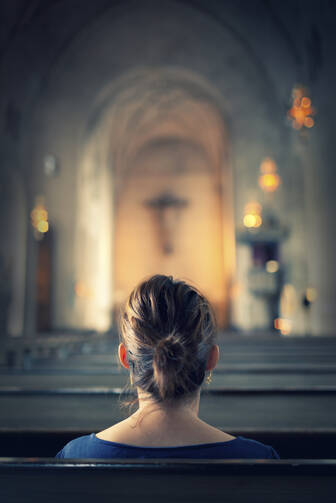In “The Joy of Love” (“Amoris Laetitia”), Pope Francis urges Catholics to consult their consciences for guidance when making moral decisions. He might be glad to hear that a recent study found many Catholics already are doing just that. According to the Pew Research Center, 73 percent of Catholics “look to their own conscience ‘a great deal’ for guidance on difficult moral questions.” The statistics demonstrate that the exhortation is not simply a suggestion for a way forward but a powerful recognition of the current reality for many people of faith.
The church urges Catholics to make every effort to build a well-formed conscience, which often is done with the aid of church teaching and through dialogue with others. The Pew study, however, found that most Catholics have less experience with this approach. Despite Pope Francis’ popularity and widespread media coverage, only 11 percent of Catholics look “a great deal [to the pope] for guidance on difficult moral questions.” Just 21 percent said they consulted church teachings “a great deal,” and 15 percent said they looked to the Bible. Many Catholics also reported avoiding discussions of faith with people with whom they might disagree (31 percent, the highest of any Christian denomination).
Of course, Catholics need not choose solely from among these sources as a way of informing their consciences. Yet drawing on church teaching, tradition and conversations with fellow believers—even those we disagree with—can challenge us to think more deeply about our faith and the ways it influences our moral decisions. Catholics already understand the importance of conscience; let us now set about helping one another to form it well.








